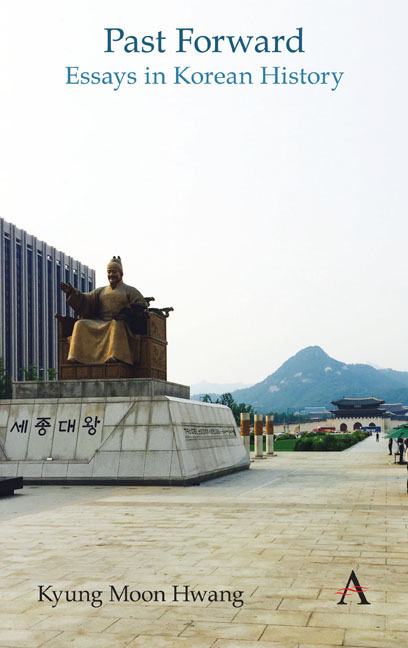Book contents
- Frontmatter
- Contents
- List of Figures
- Foreword
- Chronologies of Korean History
- Themes
- Acknowledgments
- Note on Romanization and Spelling
- Part I Circulating History
- 1 Recycling Names for Korea
- 2 Toppling Tyrants
- 3 Religion and Secularism
- 4 Commemorating the Comfort Women
- 5 May 16 and May 18
- 6 Tragedy and Farce
- 7 Generational Renewal
- Part II Durable Traditions
- Part III Ancient Remains
- Part IV Dynastic Depths
- Part V Modern Origins
- Part VI Challenges of Nationhood
- Part VII History Makers
- Part VIII External Presences
- Part IX Trials of Modernization
- Part X Gripped by the Past
- Index
6 - Tragedy and Farce
from Part I - Circulating History
- Frontmatter
- Contents
- List of Figures
- Foreword
- Chronologies of Korean History
- Themes
- Acknowledgments
- Note on Romanization and Spelling
- Part I Circulating History
- 1 Recycling Names for Korea
- 2 Toppling Tyrants
- 3 Religion and Secularism
- 4 Commemorating the Comfort Women
- 5 May 16 and May 18
- 6 Tragedy and Farce
- 7 Generational Renewal
- Part II Durable Traditions
- Part III Ancient Remains
- Part IV Dynastic Depths
- Part V Modern Origins
- Part VI Challenges of Nationhood
- Part VII History Makers
- Part VIII External Presences
- Part IX Trials of Modernization
- Part X Gripped by the Past
- Index
Summary
One of Karl Marx's most famous observations was that history tends to repeat itself, first as a tragedy, then as a farce. It is difficult to discern, however, whether the 2016 crisis surrounding President Park Geun-hye and her longtime confidant Choe Sun-sil, which led to the jailing of both, was more of a tragedy or a farce.
The farce was that, once again, we had a major scandal involving bribery and influence-peddling by people close to the president during the closing stages of her term. This had become predictable almost to the point of absurdity. Indeed, in an age of relentless social media, mere hints of dubious behavior led to wild speculation that Park, immersed in a cult founded by Choe's deceased father, turned to Choe to act as a kind of shaman sorceress in making presidential decisions. This notion was patently ludicrous, but the fact that such an idea gained traction was telling, as it pointed to another repeating pattern in Korean history, one with much deeper origins.
Since the ancient era, a tension between “high” and “low” religion has periodically arisen in the Korean political realm. Early Buddhist clerics skillfully absorbed the underlying shamanistic character of popular devotion in order to spread their teachings and gain access to political power, and monarchs in turn relied on Buddhist scholars and monks for advice, spiritual comfort and legitimacy. But Buddhist clerics who could channel personal charisma or popular followings for political purposes also represented a looming danger. Occasionally, a monk gained tremendous influence over political rulers, resulting in crises and even emergencies. In the Goryeo era, for example, the monk Myocheong appeared to hold King Injong under a spell before instigating a major rebellion, and later the monk Shin Don gained such sway over King Gongmin that Shin effectively controlled the court.
The Confucian scholar–officials who founded and maintained the succeeding Joseon kingdom were determined to eliminate this religious influence over state affairs. They tried to preserve a strong separation between what they considered the realm of rational politics and that of popular religion, namely Buddhism and shamanism. They dismantled Buddhist temples in urban centers and even banned Buddhist clerics from the capital.
- Type
- Chapter
- Information
- Past ForwardEssays in Korean History, pp. 16 - 17Publisher: Anthem PressPrint publication year: 2019



